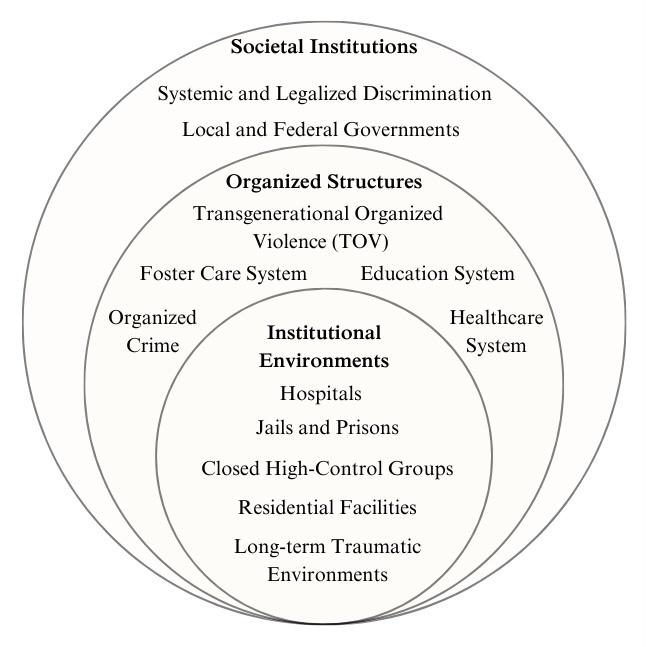Abstract
Institution Therapy is a newly proposed form of trauma therapy designed to treat survivors of institutional trauma. The key principles of Institution Therapy, or the Five R’s, are Radical Understanding, Rehumanization, Regaining Autonomy, Relapse Prevention, and Rebuilding Community. Radical Understanding is an expansive stepping stone to radical acceptance of distressing situations. Rehumanization and Regaining Autonomy work on strengthening survivors’ personal well-being through self-compassion. Relapse Prevention discusses adaptive coping mechanisms survivors can use to avoid negatively affecting behaviors. Lastly, Regaining Community illustrates how survivors can facilitate the process of re-integrating into society. Future research on Institution Therapy should use this paper as a framework to implement this therapy in studies and test its efficacy.
Keywords: institutionalization/institutional syndrome, institution of distress (IOD), trauma, radical understanding, rehumanization, autonomy, relapse prevention, community
Introduction
Institution Therapy is a newly proposed type of trauma therapy focused on healing from ritualized and systemic abuse. It relies on the bases that
- the existence, power, and prevalence of the Institution Of Distress (IOD) cannot be easily or immediately controlled by the survivor,
- the survivor must attempt healing from the abuses and failures of the IOD while still continually reminded of or affected by its power, and
- the survivor is willing to attempt treatment and has some desire to avoid relapse behaviors.
Potential IODs include medical and psychiatric hospitals, jails and prisons, organized criminal groups, educational systems, local and federal governments, cults and high-control groups, transgenerational violence and abuses, long-term traumas (i.e. systemic discrimination, pervasive or seemingly inescapable complex trauma, etc.), and much more. The key principles (or the Five R’s) of Institution Therapy are Radical Understanding, Rehumanization, Regaining Autonomy, Relapse Prevention, and Rebuilding Community.
